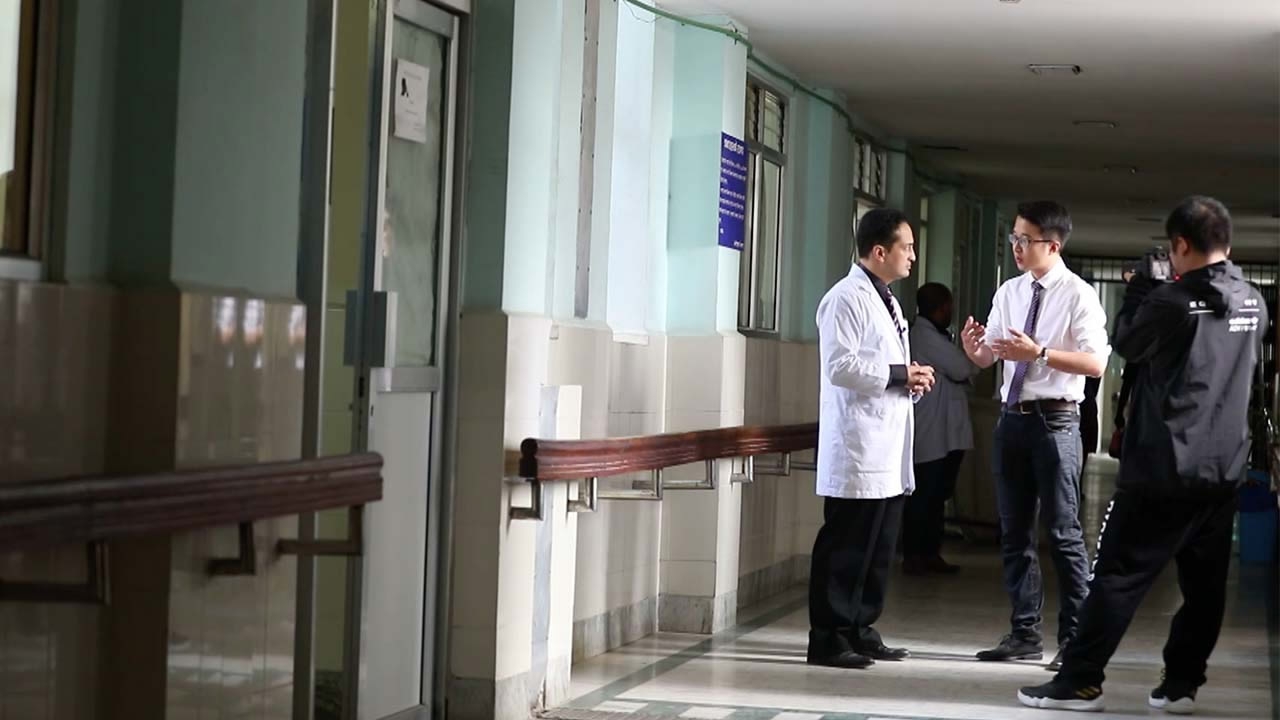
Culture
22:05, 23-Nov-2017
Faces of Belt & Road: Nepali doctors expect study opportunities in China
By Ge Yunfei

In the suburbs of Kathmandu lies Patan Hospital. As one of the top three hospitals in the city, patients wait in long lines to see their doctors.
Dr. Nabees Pradhan, head of the orthopedics department, is one of the most reputed doctors at Patan. Though 20 years have passed since he studied in Beijing, he still hasn't forgotten how to speak Mandarin.
Pradhan went to China in 1993 at the age of 19. At that time, there was only one medical university in Nepal which accepted only 20 students every year.
When Pradhan had to look elsewhere to pursue his dream of being a doctor, the Chinese government provided scholarships for Nepali students to study in China.
So he went to Beijing Medical University (now the medical school at Peking University) and stayed for 6 years.
“The experience of graduating from China’s top medical school made me what I am today,” he said.

Dr. Nabees Pradhan. /CGTN Photo
Dr. Nabees Pradhan. /CGTN Photo
“From my perspective, there is a big gap in healthcare between China and Nepal. China has much higher medical standards. I hope more of our medical students will have the opportunity to study in China for masters or PhD degrees. These students’ technique of operation will be improved. And also, I hope doctors from China could come to Nepal and exchange work experiences with us. In this way, we could learn from the Chinese doctors," he said.
People who shared similar experiences to Dr. Pradhan formed the Arniko Society, an alumni association of scholars and experts in Nepal who graduated from Chinese universities.
Its president, Sarbottam Shrestha, says the organization was first to translate and publish documents on China’s Belt and Road Initiative into Nepali.
When talking about future medical cooperation between China and Nepal, Shrestha thinks traditional Chinese medicine could play a bigger role in Nepal.
“So far, it’s totally a blank in the field of traditional Chinese medicine cooperation between China and Nepal. There is no traditional Chinese medicine hospitals. There are some TCM doctors but they only serve Chinese people here. So we want to push TCM to the whole Nepali society.”
Shrestha says he hopes the Belt and Road Initiative will help the two countries establish a mutual certificate recognition system.

SITEMAP
Copyright © 2018 CGTN. Beijing ICP prepared NO.16065310-3
Copyright © 2018 CGTN. Beijing ICP prepared NO.16065310-3